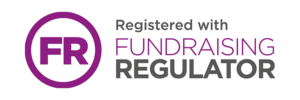How to make conversations easier
We’ve been exploring the impact of having a language disorder, discussing self-help strategies and ways for others to help make conversation easier. After many open and honest conversations, we’ve put together a list of top tips and advice from our community, overseen by Speech and Language Therapist, Gemma Hoyle.
I have Aphasia. What can I do to make conversation easier?
Set up for success
- Take a deep breath and relax
- Be patient with yourself
- Choose a quiet space or reduce background noise
- Make eye contact
- Tune into people’s facial expressions
- Keep it simple and slow
- Think ahead
- Make a script with conversation starters
- Ask for help – this includes asking people to stop, slow down or repeat themselves
Use these strategies
- Use the ‘I have Aphasia’ card to make others aware of your communication difficulties
- Practice saying the first sound or letter, and reading out loud
- Break up your sentences into smaller chunks
- Use actions e.g. pointing, or demonstrating
- Use pictures or objects
- Write things down or draw a picture
- Be honest if you don’t understand
- Regularly use therapy apps such as Cuespeak or Tactus
- Read things twice in short bursts
- Take a break
How can I support someone with Aphasia?
Set up for success
- Learn about Aphasia and how this impacts your loved one
- Listen, be patient and give them time
- Choose a quiet or intimate space and reduce background noise
- Remove distractions
- Give the person your undivided attention
- Don’t put the person with Aphasia under pressure
Help the person to understand
- Try to speak face to face, making eye contact
- Use simple words and sentences
- Speak slowly, loudly and clearly
- If you’re in a group, speak one at a time
- Try not to ask unexpected questions
- Recap or rephrase what you have said
- Clearly state when you’re changing topic
Help the person to communicate their wants and needs
- Don’t interrupt, make presumptions or try to finish their sentence
- Be honest if you don’t understand
- Recap or rephrase what they have said to make sure you understand
- Involve your loved one in the conversation – speaking to them, and not about them


